Labs
Anatomy and Physiology Lab (0201281) :
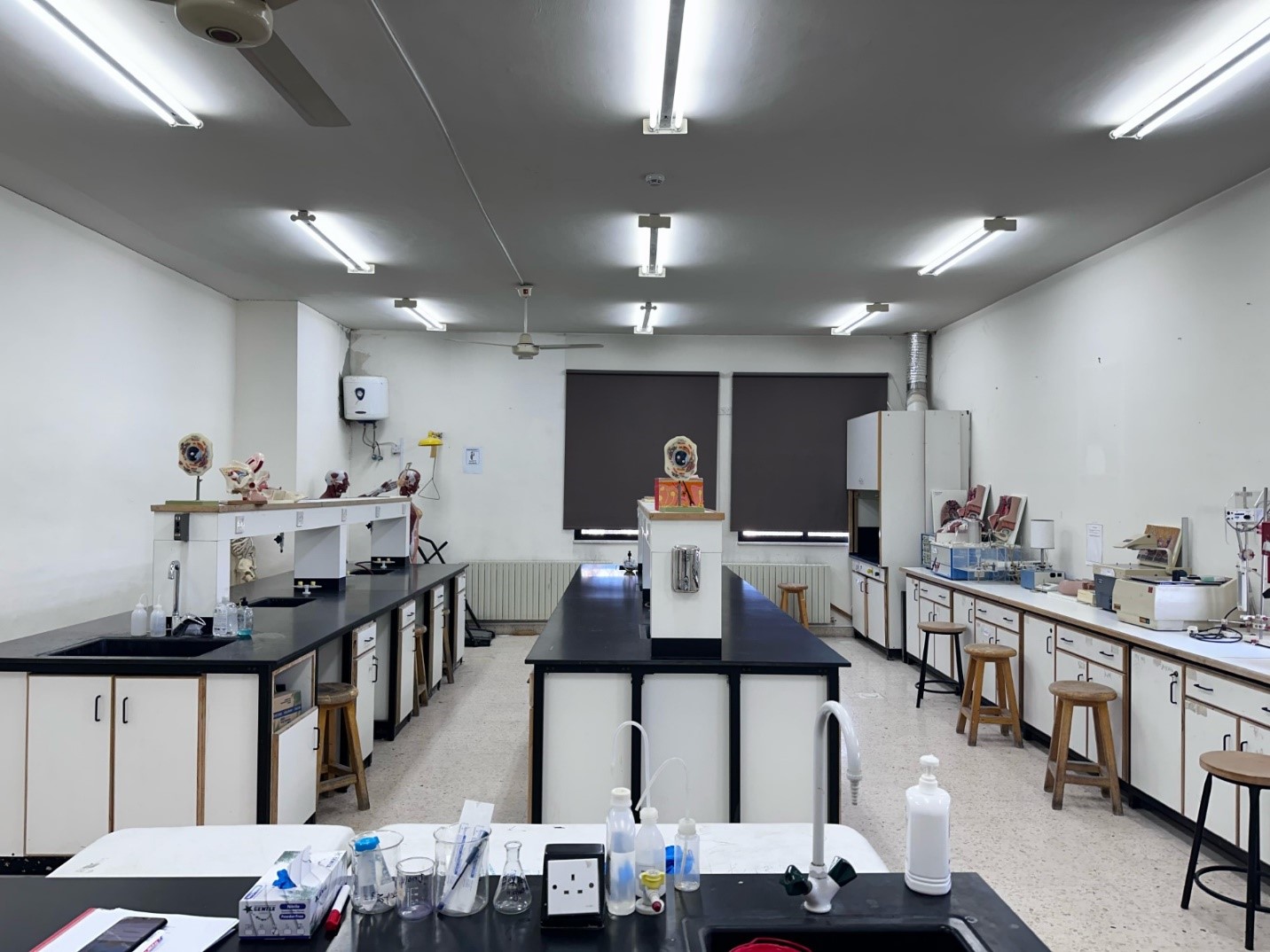
This course focuses on experiments that explain the normal structure and function of human body systems (sensory, nervous, endocrine, renal, reproductive, respiratory, and cardiovascular system).
Biopharmaceutics and Pharmacokinetics Lab (0201373):
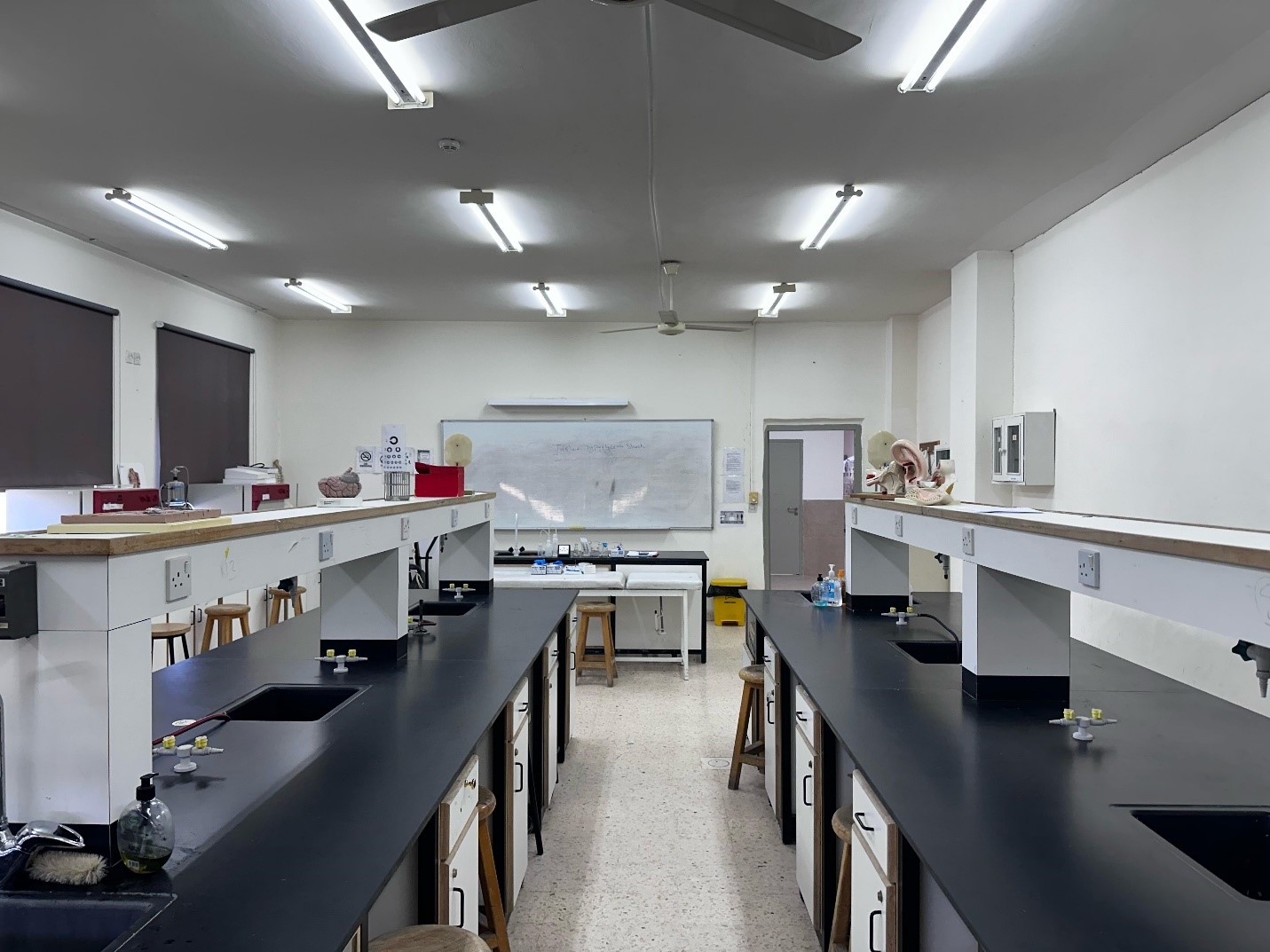
Biopharmaceutics & Pharmacokinetics Lab prepares the student to understand the kinetics of drug absorption, distribution, and elimination (i.e, metabolism and excretion) to describe how biopharmaceutics affects drug product performance and how pharmacokinetics is related to pharmacodynamics and drug toxicity.
Clinical Cases Lab (0201532):

This course will integrate didactic coursework and experiential education to enable each student to acquire the necessary foundation to provide pharmaceutical care to patients by interpreting and discussing selected clinical cases in a classroom setting.
Dispensing Lab (0201371):
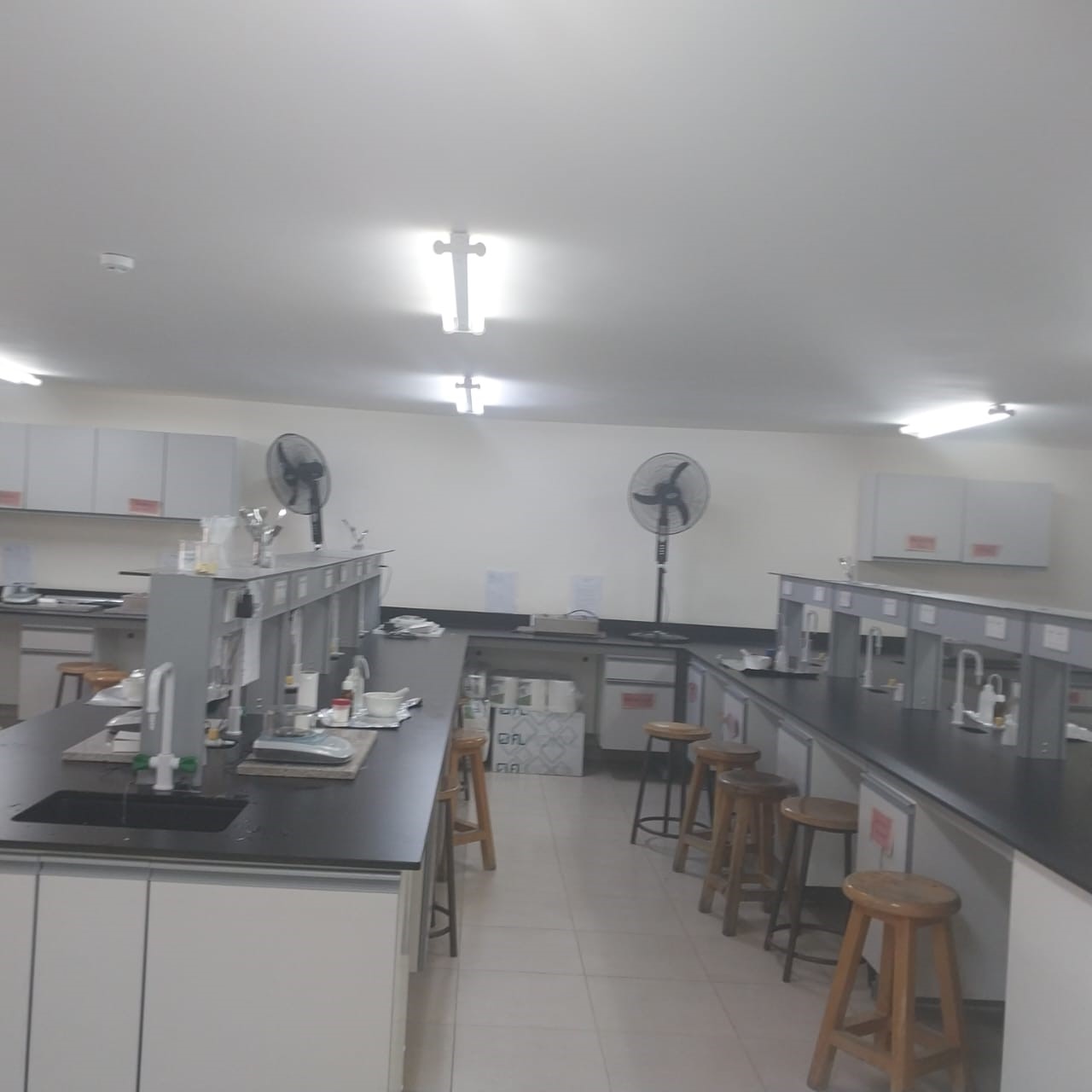
This practical course is designed to introduce the students to the principles and procedures involved in bench-scale compounding and dispensing pharmaceutical dosage forms such as suspensions, emulsions, creams, ointments, gels, and suppositories. In addition to the practical skills, the students will develop an appreciation for patient education by writing a clear and concise label depicting the use and storage of dispensed medications.
General Chemistry Lab (0201103):
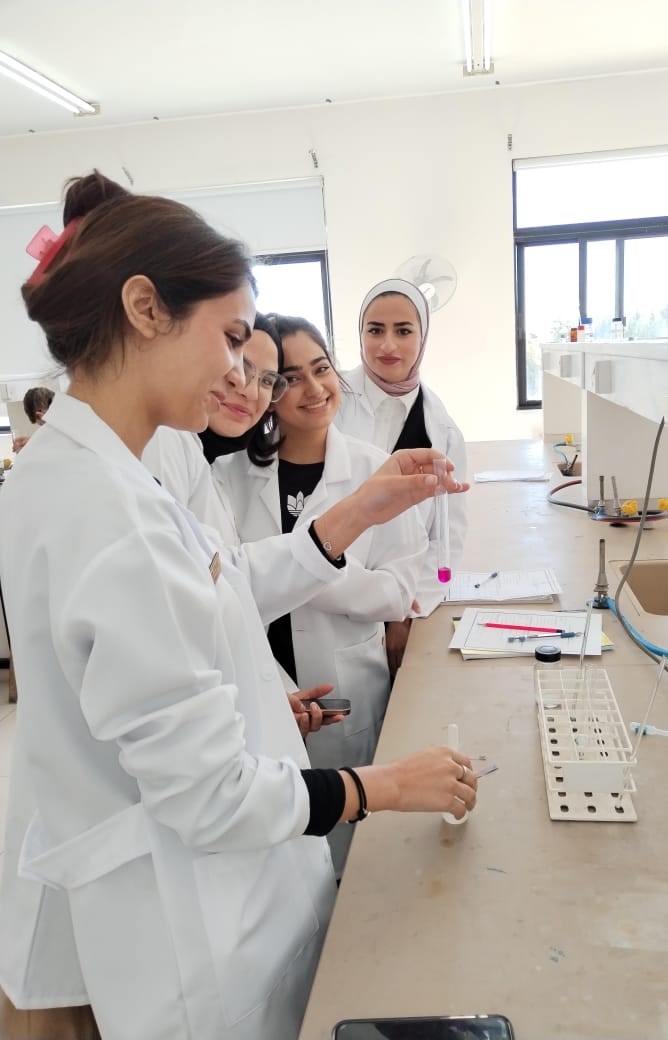
This course covers the practical applications of the most important theoretical concepts covered in the General Chemistry course, such as qualitative and quantitative studies, stoichiometry, volumetric analysis, and thermochemical changes.
Medicinal Chemistry Lab (0201363):
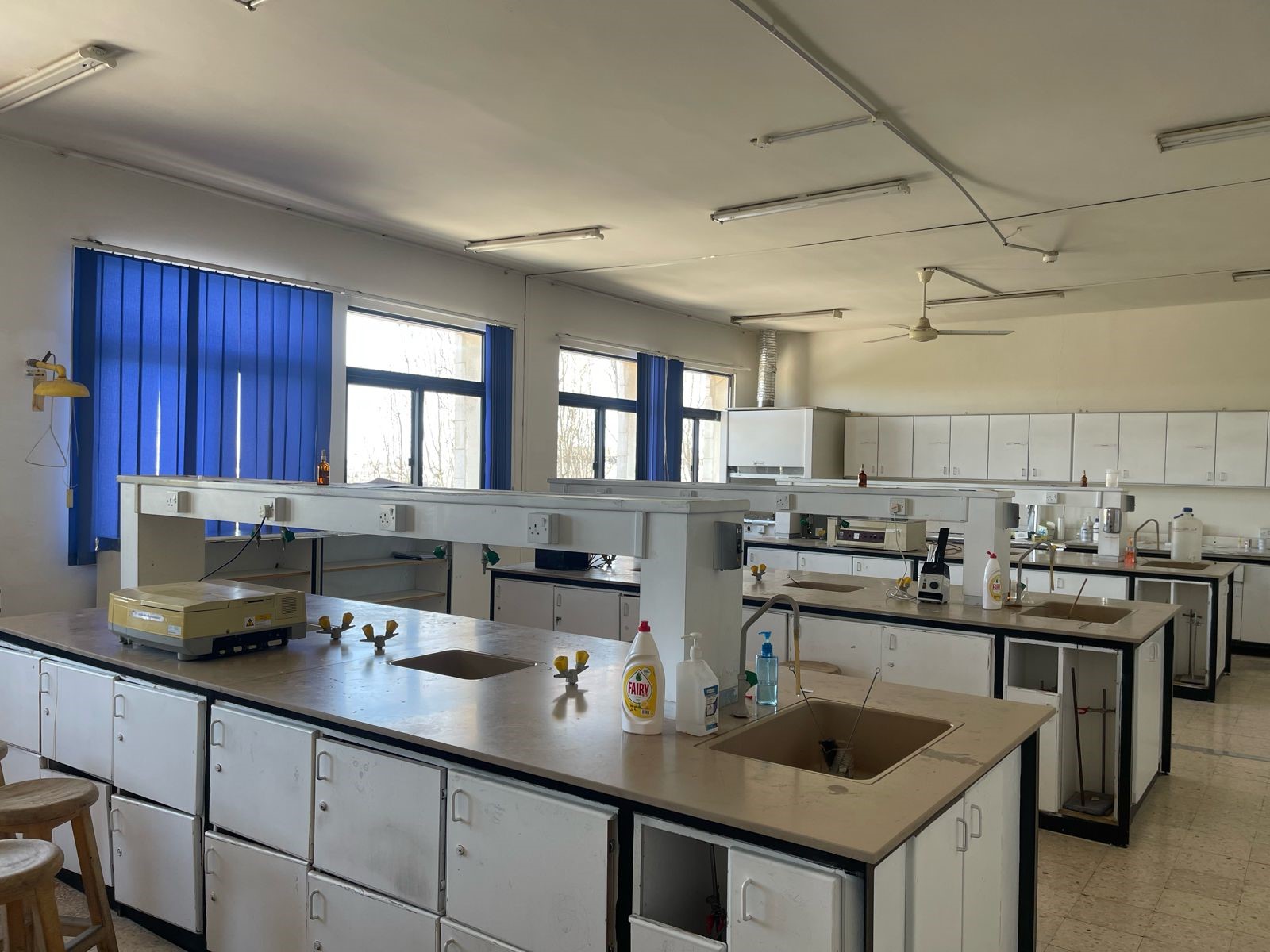
This practical course explores the role of medicinal chemistry in drug synthesis. It addresses principles of drug chemical synthesis. This course is designed to enhance the student knowledge and ability to operate a chemical drug synthesis using known procedures. Students will learn chemical techniques to assign the identity of the chemical structure.
Pharmaceutical Analysis Lab (0201361) :
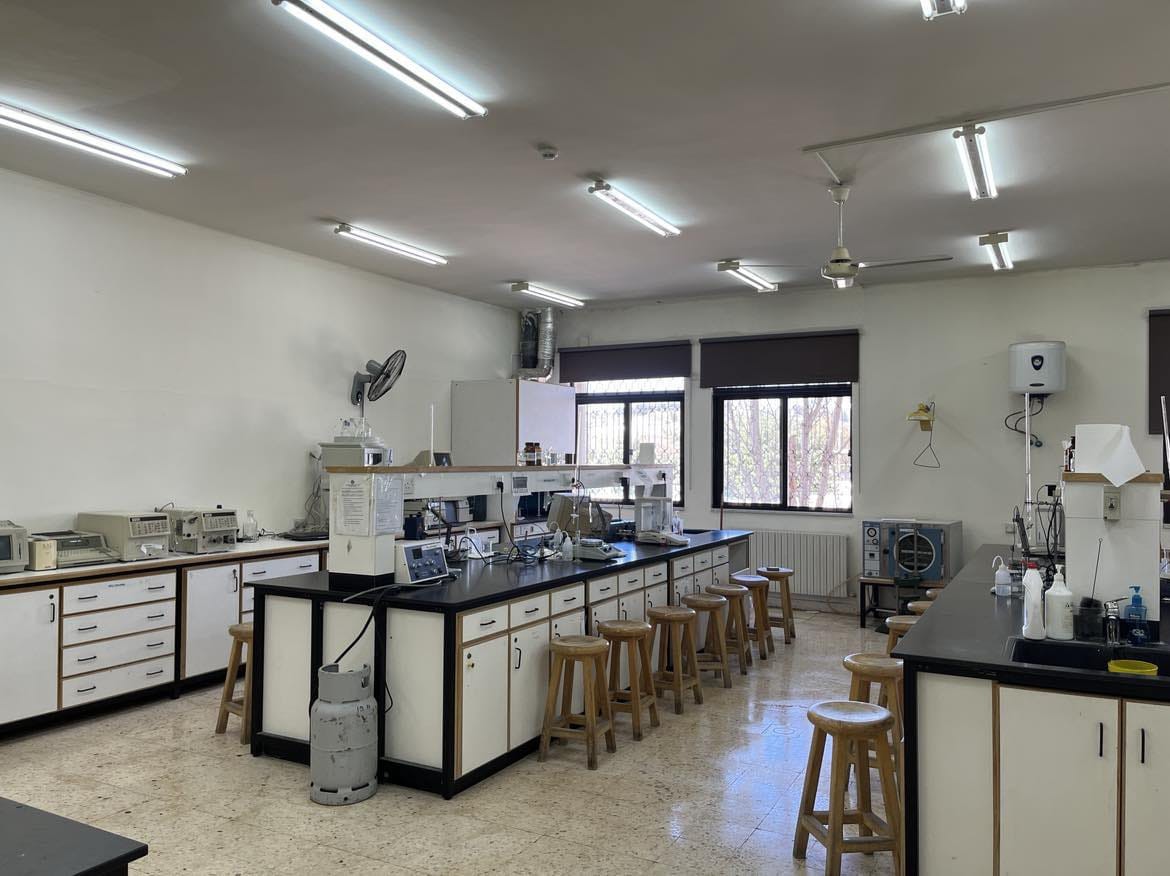
This course aims to cover different titrimetric procedures that are employed in quantitative pharmaceutical analysis and different instrumental techniques used in pharmaceutical analysis.
Pharmaceutical Microbiology Lab (0201238):
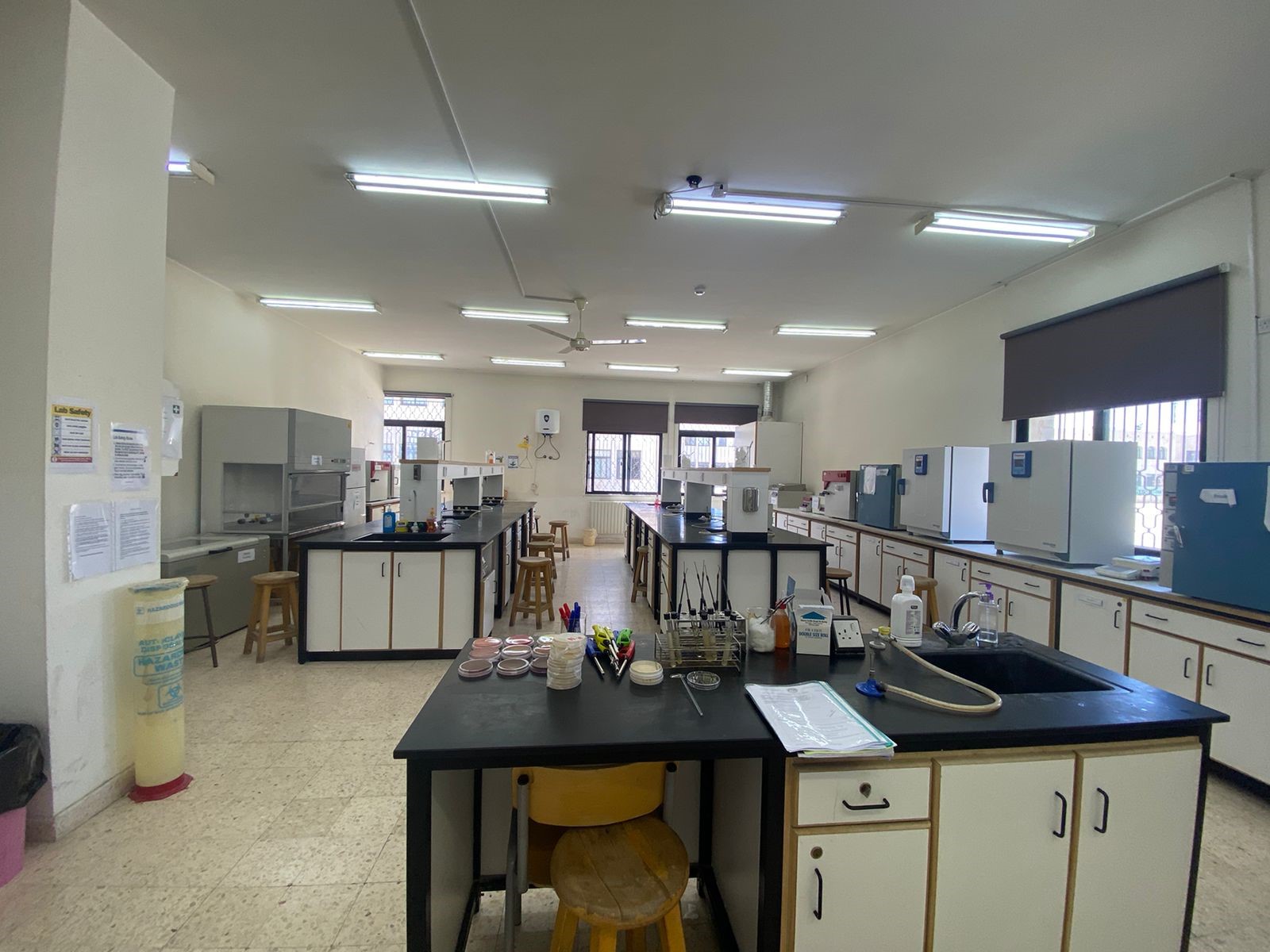
In this course, the students will apply some of the knowledge they gained in pharmaceutical microbiology. The students will perform tests used to monitor the environment (air, personnel, water, etc). Moreover, the student will apply aseptic techniques while conducting experiments in the laboratory. Also, the students will perform microbial identification through simple and gram staining. The students will perform various in vitro tests for evaluating antimicrobial agents.
Pharmaceutical Organic Chemistry Lab (0201212):

This course introduces the students to safety rules and provides the students with important knowledge to acquire good practical skills and methodologies in handling chemicals and conducting experimental glass wares. This course will cover practical applications of various methods and techniques used for the identification, purification, and separation of organic compounds through an understanding of the physical-chemical properties of functional groups.
Pharmaceutical Technology Lab (0201526): :
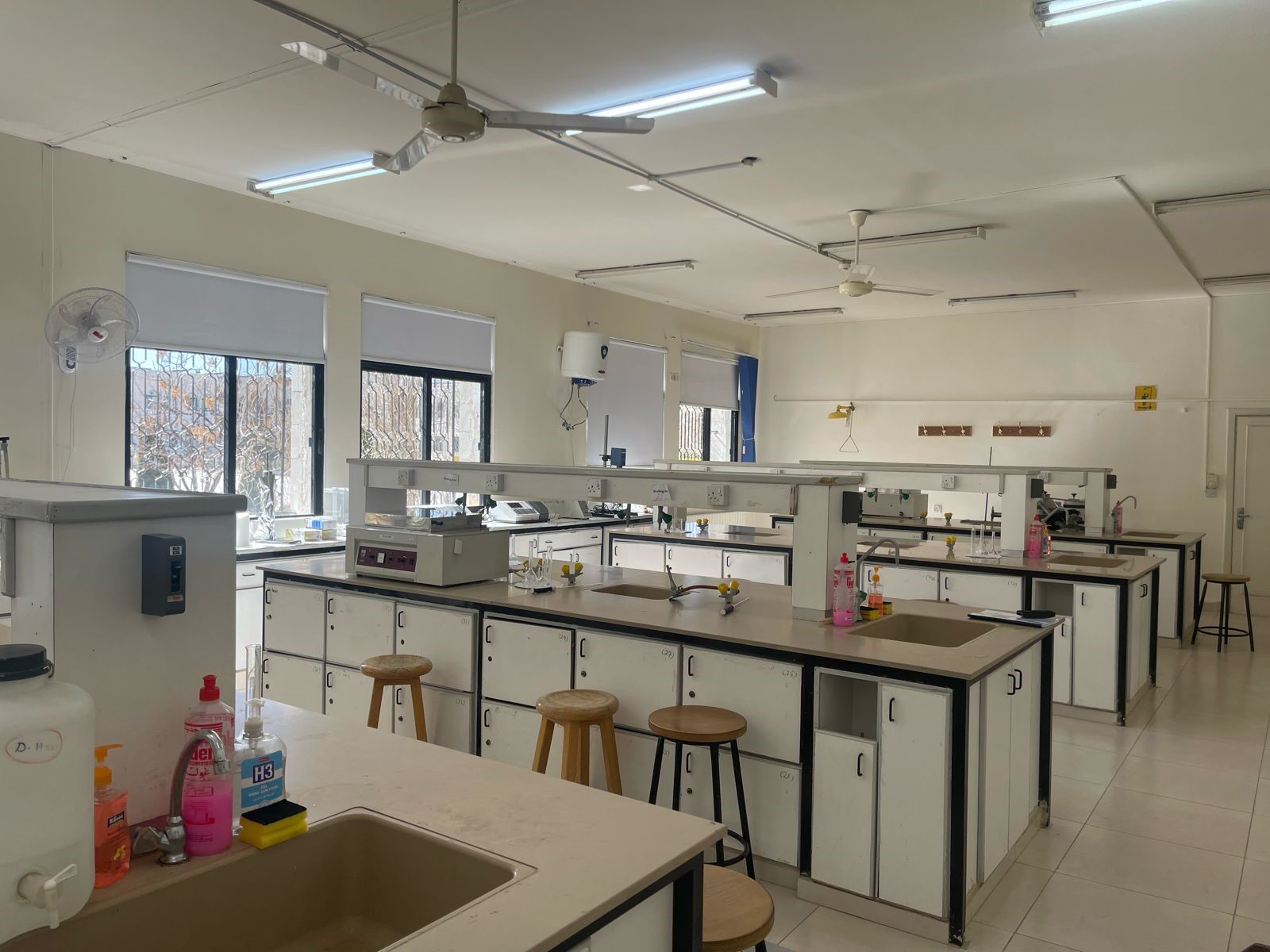
This practical course provides the students with hands-on knowledge of the techniques used in the manufacture and quality control of solid dosage forms. These techniques include milling, particle size analysis, mixing, powder flowability, granulation, and tablet coating. Quality control tests such as disintegration, dissolution, hardness, friability, weight variation, and content uniformity will also be introduced.
Pharmacology Lab (0201382):
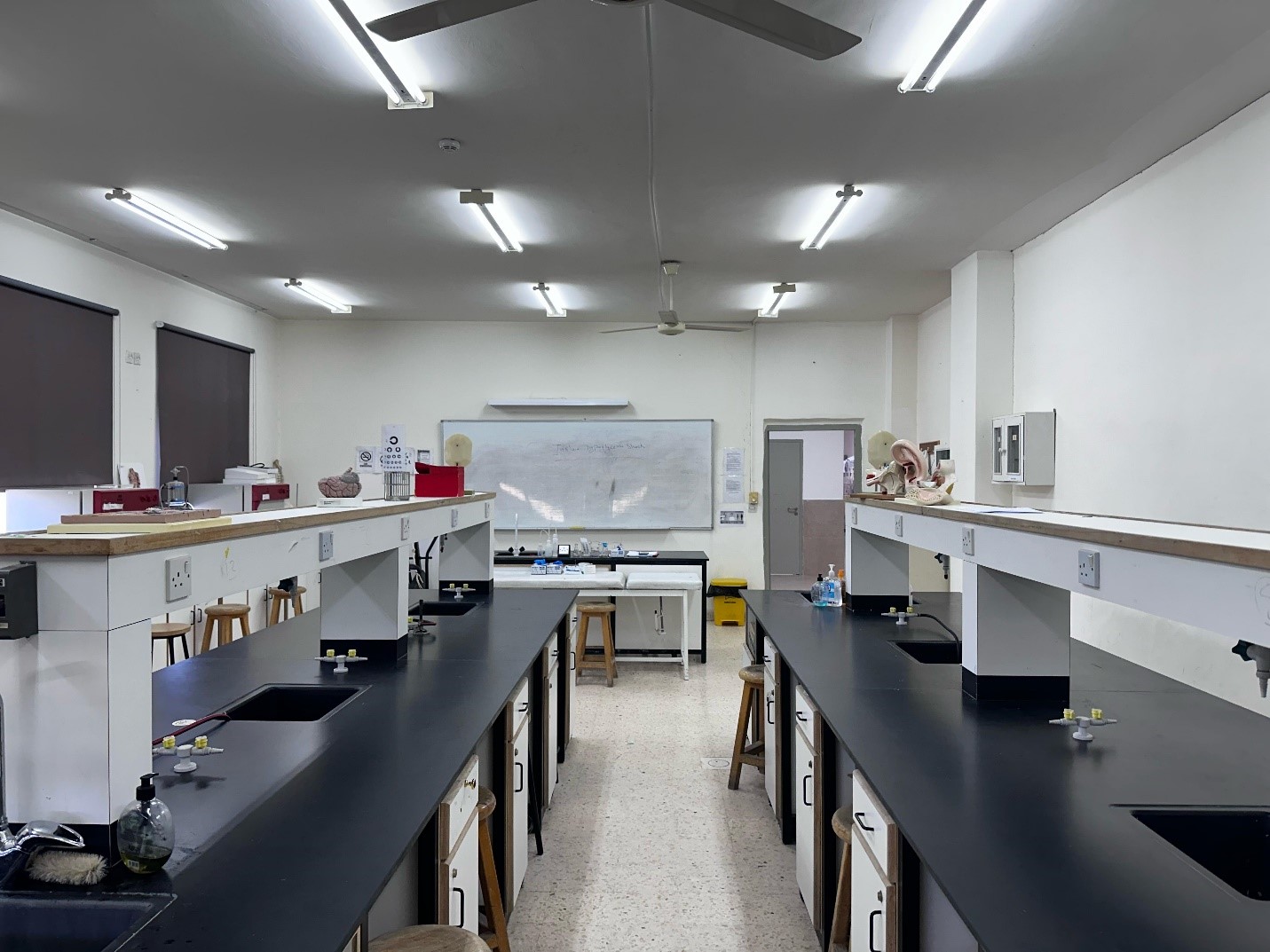
This course is designed to learn how to handle different laboratory animals and to see the actual pharmacological effects of drugs in vivo and in vitro. The experiments students perform cover drugs acting on the rabbit intestine, general anesthetics, analgesics, insulin, drugs acting on the eye, NSAIDs, and others.
Pharmacy Practice Lab (1) (0201384): :
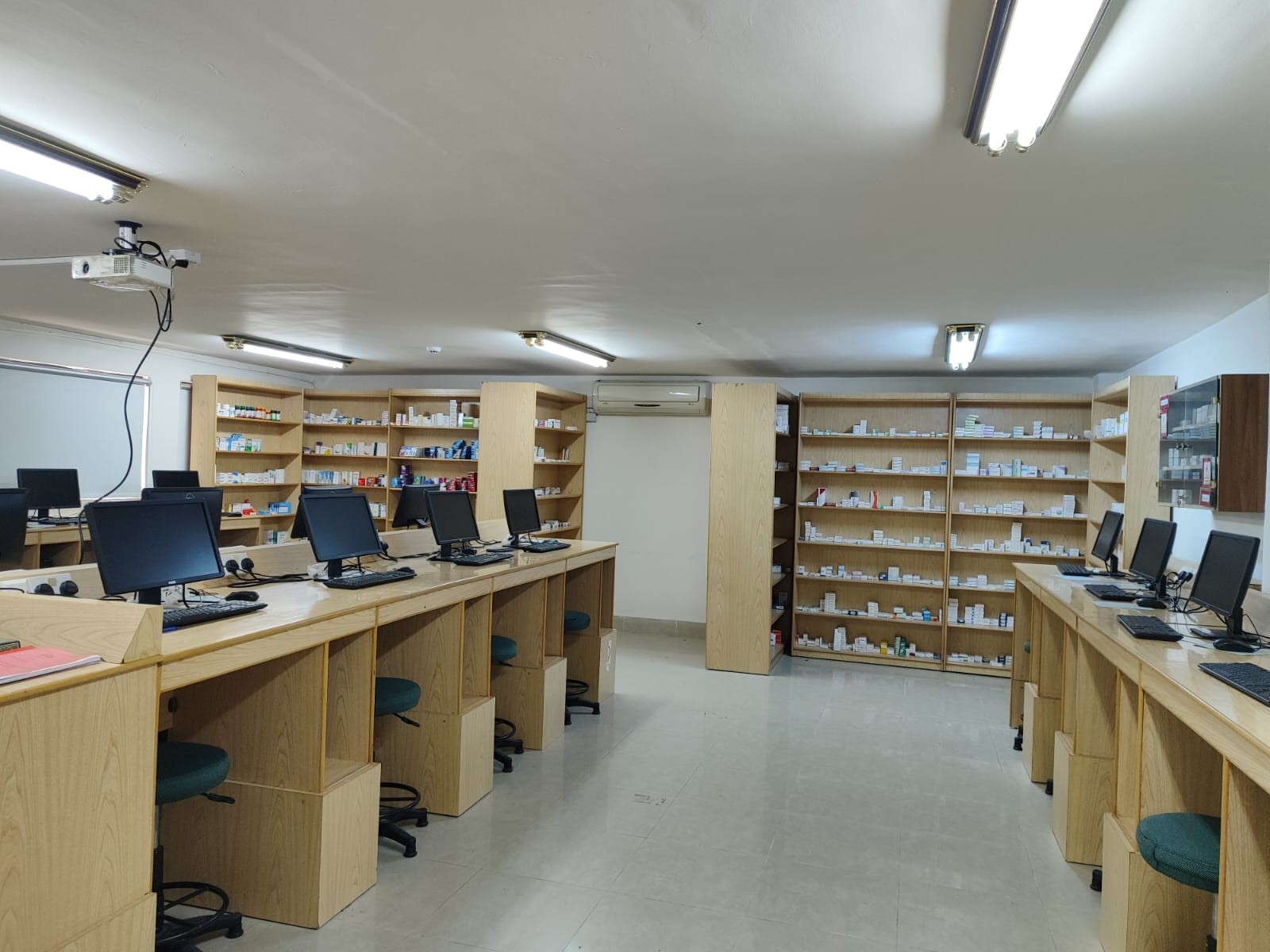
This practical course will introduce students to non-prescription medications and patient care pertaining to common symptoms, minor diseases, self-care, and cases that should be referred to healthcare systems in a simulated community pharmacy setting .
Pharmacy Practice Lab (2) (0201538): :
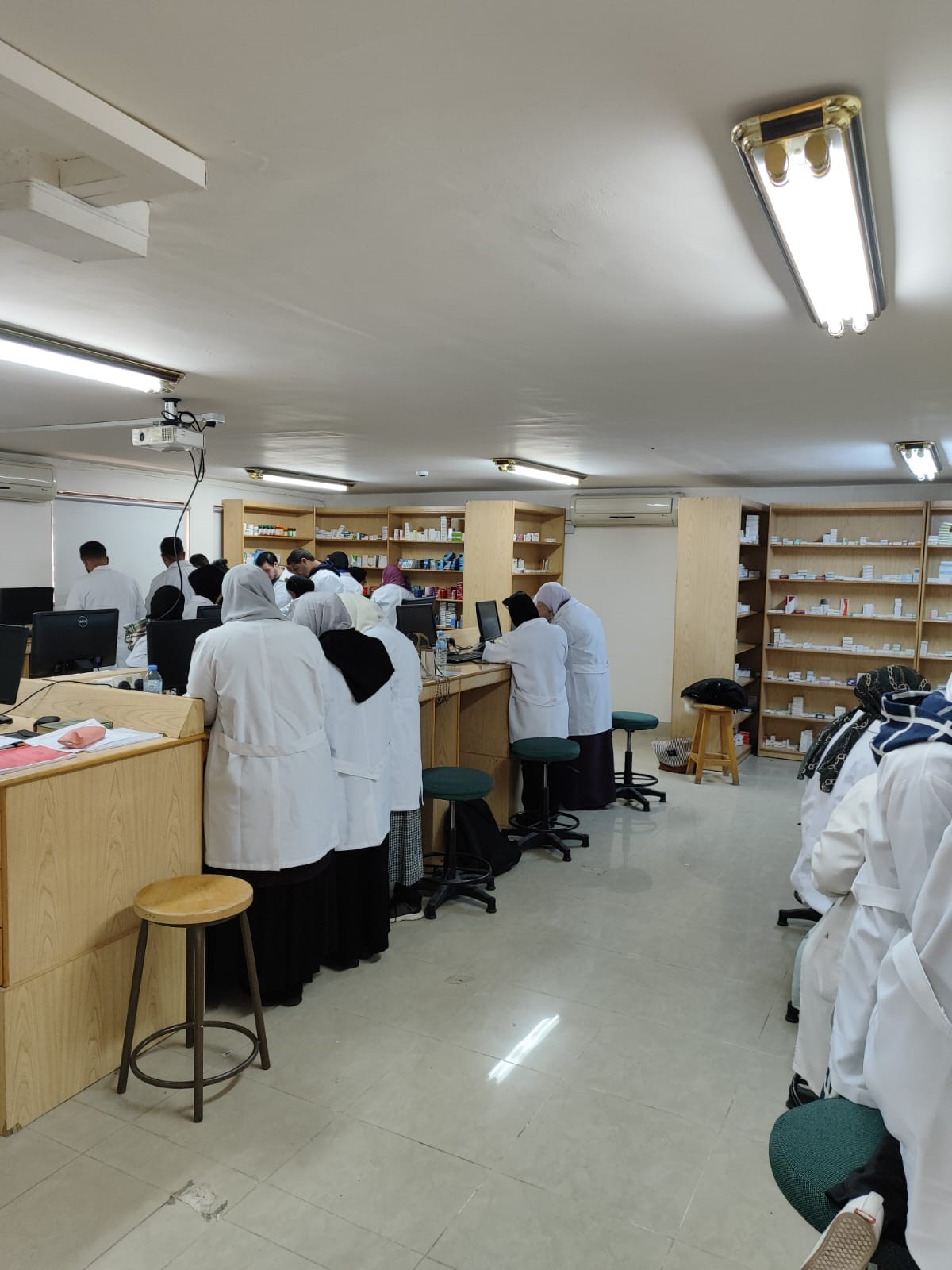
This course will integrate didactic coursework and experiential education to enable each student to acquire the necessary foundation to provide pharmaceutical care to patients through clinical training in a hospital setting.